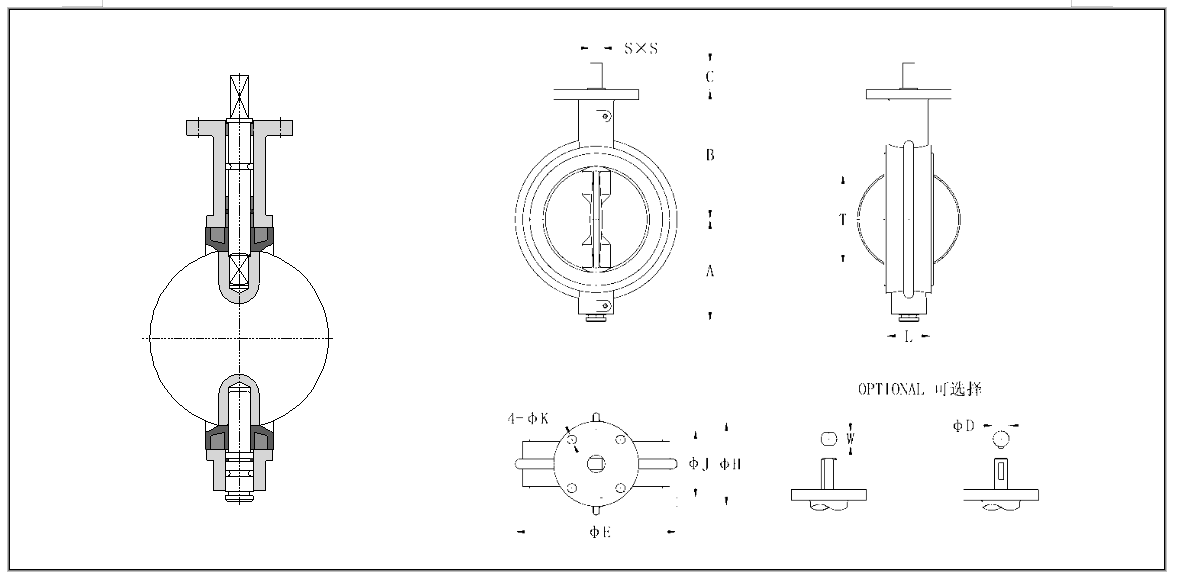
- Call Us
- +8618633052223
- njhdvlz@163.com
Aug . 21, 2024 14:35 Back to list
Reliable Manufacturers of Corrosion Resistant Check Valves for Various Applications
Understanding Corrosion-Resistant Check Valve Manufacturers
In industrial applications, valves play a crucial role in controlling the flow of fluids and gases. Among various types of valves, check valves are essential for preventing backflow and ensuring that fluids move in the desired direction. Corrosion-resistant check valves are specifically designed to withstand harsh environments, particularly in industries involving aggressive chemicals or seawater. Understanding the significance of corrosion-resistant check valve manufacturers is vital for selecting the right components for your system.
Importance of Corrosion-Resistant Materials
Corrosion can severely compromise the performance and longevity of valves. In many sectors, such as oil and gas, chemical processing, and water treatment, exposure to corrosive substances can lead to equipment failure, safety hazards, and costly downtime. To mitigate these risks, manufacturers utilize various corrosion-resistant materials, such as stainless steel, brass, PVC, and specialized alloys. These materials are engineered to resist oxidation, pitting, and other forms of degradation that can occur when exposed to damaging environments.
Selection Criteria for Manufacturers
When choosing a manufacturer for corrosion-resistant check valves, several factors should be taken into consideration
1. Material Quality Ensure that the manufacturer uses high-grade materials that are proven to withstand the specific corrosive conditions relevant to your applications. Look for certifications and industry standards that validate their material choices.
2. Manufacturing Process The production techniques employed by the manufacturer can affect the integrity of the check valves. Manufacturers that utilize advanced technologies and rigorous quality control processes are more likely to produce reliable and consistent products.
3. Customization Options Different applications may require unique specifications. A reputable manufacturer should offer customizable solutions to meet particular needs, including altering sizes, pressure ratings, and end connections.
4. Technical Support and Consultation Good manufacturers provide comprehensive technical support and guidance. Their expertise can help in selecting the most appropriate valve types and materials for specific applications, thereby enhancing system efficiency.
corrosion resistant check valve manufacturer

5. Reputation and Experience Consider manufacturers with a solid track record in the industry. Established companies with extensive experience are more likely to understand the complexities and challenges faced in various applications.
Leading Corrosion-Resistant Check Valve Manufacturers
Several manufacturers have built a reputation for producing high-quality corrosion-resistant check valves. Some notable names include
- Velan Inc. Known for their innovative valve designs, Velan offers a range of corrosion-resistant check valves suitable for tough environments, including marine applications.
- Crane Co. With a diverse portfolio, Crane Co. produces check valves made from various corrosion-resistant materials designed for rigorous industrial settings.
- GROVE Valve They specialize in providing custom solutions, ensuring that their check valves meet specific customer demands while maintaining high standards of corrosion resistance.
- Kitz Corporation This manufacturer combines traditional craftsmanship with modern technology, resulting in efficient check valves designed to last in corrosive environments.
Conclusion
Corrosion-resistant check valves are vital components in maintaining the integrity and efficiency of fluid systems across various industries. Selecting a reliable manufacturer is essential for ensuring the durability and performance of these valves. Considerations such as material quality, manufacturing processes, customization options, and the manufacturer's reputation can guide businesses in making informed decisions. By partnering with reputable corrosion-resistant check valve manufacturers, industries can effectively protect their infrastructure from the detrimental effects of corrosion, leading to safer operations and reduced maintenance costs.
-
Stainless Steel Sanitary Butterfly Valve | Hygienic & Durable
NewsAug.02,2025
-
Double Flanged Short Pattern Butterfly Valve | Compact, Efficient Flow
NewsAug.01,2025
-
Precise 3-Inch Butterfly Valve Dimensions | Durable Flow
NewsJul.31,2025
-
3 Butterfly Valve Dimensions | GPT-4 Turbo Precision Specs
NewsJul.31,2025
-
Stainless Steel Sanitary Butterfly Valve for Hygienic Flow Control
NewsJul.30,2025
-
High-Performance Groove Butterfly Valve for Easy Installation
NewsJul.30,2025